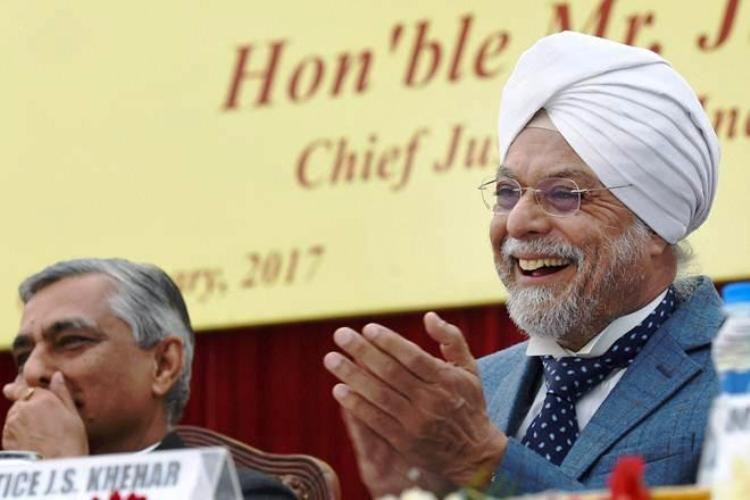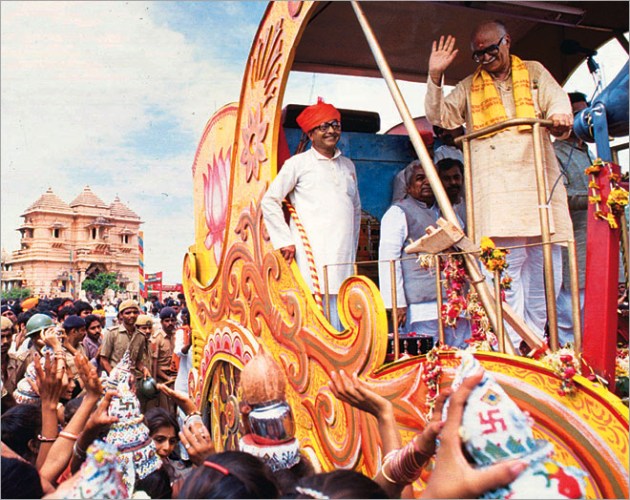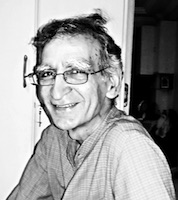After the long wait for the Supreme Court’s verdict, Chief Justice J.S. Khehar opined that the protracted dispute over Ram Janmabhoomi-Babri Masjid should be settled out of court. (March 2017) He even offered to mediate. Spokespersons of the Rashtriya Swayamsevak Sangh (RSS) and its affiliates welcomed the move, while it took a large number of Muslims and others by surprise as the Court was approached for justice and not for a compromise formula.

The Lucknow Bench of the Allahabad High Court delivered its judgment in 2010. Then the judges ruled that the disputed land should be divided into three parts. The judgment was a balancing act for all the parties involved – Ram Lalla Virajman, Nirmohi Akhada and Sunni Waqf Board. Since Hindus believe that the “birth place” of Ram to be below the place where the central dome of the mosque stood, the court observed, that part should be allotted to them, the Hindus. In response to the judgment, the RSS chief declared in a jubilant mood that now that the roadblocks to the building of a grand Ram temple at the site had been cleared, all the parties should cooperate in this “national” work.
This judgment was dismaying to many. The Babri Mosque had been there for nearly five hundred years and was in the possession of Sunni Waqf Board. The dispute arose in the 19th century. In 1885, even the court had denied Hindus the right to build a shed on the platform outside the mosque. It is after the forcible installation of Ram Lalla idols in 1949 that the Hindus began confidently staking a claim. Despite prime minister asking Pandit Jawaharlal Nehru to remove the idols, Uttar Pradesh administration did not comply. The gates of the masjid were sealed. It was in 1986 that prime minister Rajiv Gandhi had the doors of the Masjid opened under the intense pressure from the Hindu right-wing forces.

With Lal Krishna Advani, then president of the Bharatiya Janata Party (BJP), joining the agitation that the Vishwa Hindu Parishad (VHP) launched, its political impact started deepening and widening at the same time. It was made the major polarizing issue around which the consolidation of the Hindu vote bank began. The rath yatra that Advani led to mobilize support for the building of the temple became bigger in the aftermath of the implementation of the Mandal Commission report. Those who opposed reservation for OBCs came forward in large numbers. While the BJP did not voice direct opposition to Mandal, it tapped into the anger for building the Ram temple. ‘Mandal versus Kamandal (holy water pot, religiosity)’ is how some framed it.
The culmination of this campaign was the demolition of the Babri Masjid. The RSS and its affiliates mobilized the demolishers, with prime minister Narasimha Rao secretly colluding in the act. When the local administration failed to rein in the situation, BJP chief minister Kalyan Singh stepped in and facilitated the assembling of the crowd that went on to demolish the mosque. He did this despite having promised to the Supreme Court that he would protect the mosque. Narasimha Rao locked himself up in his puja room as the mosque was being demolished, although he later promised that it would be built precisely at the same spot.
The matters took a turn for the worse as a BJP team of “archeologist-kar sevaks” tried to prove that there were remnants of the ancient Ram temple below the mosque. Archeologically, this claim is not tenable. That there was no convincing proof that the Ram temple once existed at the site of the mosque becomes clear from the fact the Allahabad High Court Bench had to cite the “faith of Hindus” to allot two thirds of the land to Hindu groups. The well-planned demolition of mosque is one of the biggest crimes in independent India. Yet, those who led the demolition have not been punished so far.

The Liberhan Commission did talk about the underlying conspiracy but unfortunately it took a long time to submit its report. To add insult to injury, Advani and company became politically stronger after this crime against the nation. The demolition also unleashed massive violence against Muslims, particularly in Mumbai, Bhopal and Surat. The guilty in this violence have also been let off totally or with minor punishment.
Courts are made for dispensing justice. The real issue in the case of Ram Janmabhoomi-Babri Masjid is land ownership. The High Court judgment was based more on “faith” than the records of ownership of the land. The Supreme Court needs to stick to the law books and needs to set right the wrongs done so far. Only concrete legal aspects should determine the outcome of the case. Instead, by calling for a compromise out of court, the chief justice is shying away from serving justice. Out of court, the Hindu groups have already said that Muslims should leave the site for the Ram temple and another suitable plot of land will be given to them for the mosque.
There are threats from the likes of Subramanian Swamy, the BJP MP, and others that if Muslims don’t give up their claim, the Bill for the building of the temple will be passed in Parliament once BJP has even bigger numbers there. These threats can never be justified. There are already demands for other mosques to be converted into temples! An out-of-court settlement lets the Hindu nationalists, because they hail from the majority community, dominate and pushes the representatives of Muslims to a corner. This does not augur well for the health of our democracy.
Forward Press also publishes books on Bahujan issues. Forward Press Books sheds light on the widespread problems as well as the finer aspects of Bahujan (Dalit, OBC, Adivasi, Nomadic, Pasmanda) society, literature, culture and politics. Contact us for a list of FP Books’ titles and to order. Mobile: +919968527911, Email: info@forwardmagazine.in





